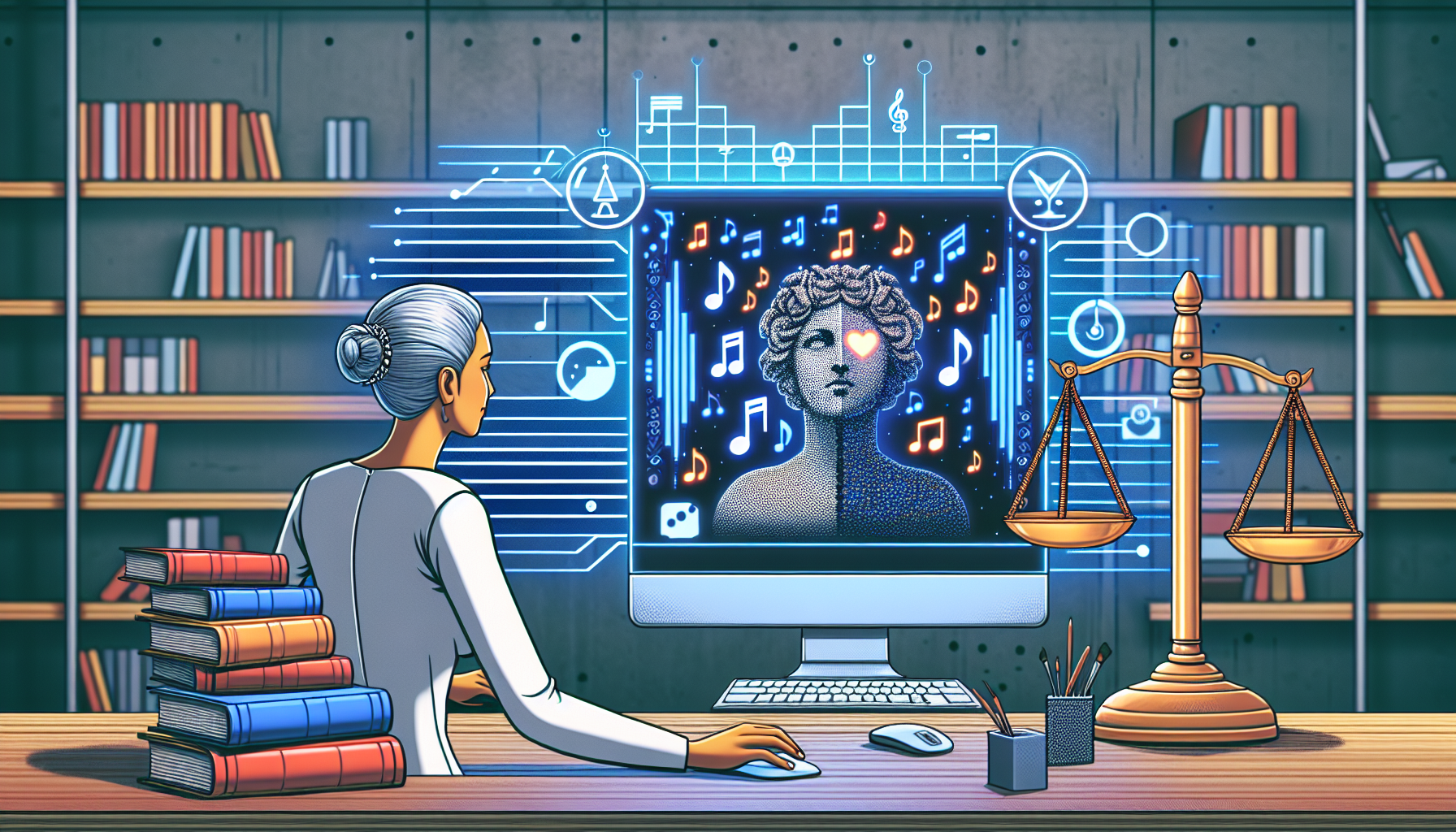 ## Music AI Startups Concede to Utilizing Copyrighted Content: A Legal Clash Emerges
## Music AI Startups Concede to Utilizing Copyrighted Content: A Legal Clash Emerges
The Unorthodox Legal Defense
In response to legal actions, the majority of technology firms tend to refute any misconduct, providing plausible justifications for their behaviors. In contrast, music AI startups Udio and Suno have opted for a different tactic by confessing to the specific activities they are being prosecuted for. This daring decision has paved the way for a legal confrontation that could significantly affect both the tech and music sectors.
The Lawsuit: An In-Depth Examination
In June, Universal Music Group, Warner Music Group, and Sony Music Group took legal action against Udio and Suno. The music labels asserted that these startups developed their AI models by harvesting copyrighted content from the web. In a recent submission to the court, Suno admitted that its neural networks do indeed utilize copyrighted material. The company acknowledged that its training dataset encompasses “essentially all music files of reasonable quality publicly available on the internet,” likely comprising millions of unauthorized copies of songs.
The Fair Use Defense
Suno’s argument is based on the principle of fair use. The company contends that its scraping operations are protected under fair use, claiming, “It is fair use under copyright law to create a copy of a protected work as part of a behind-the-scenes technical process, hidden from the public, serving the purpose of producing a non-infringing new product.” Essentially, Suno argues that since the AI-generated compositions do not contain samples, the method of acquiring those compositions for training should not be deemed illegal.
RIAA’s Strong Opposition
The Recording Industry Association of America (RIAA), which initiated the legal action, has roundly criticized the conduct of Udio and Suno. A representative for the RIAA remarked, “Their large-scale infringement doesn’t fall under ‘fair use’. There’s nothing fair about appropriating an artist’s life’s work, extracting its intrinsic value, and rebranding it to compete with the originals directly.” The RIAA maintains that the defendants had a legitimate route to commercialize their products by securing permission prior to using copyrighted content, as many rivals have accomplished.
Potential Repercussions for the Tech and Music Sectors
This legal confrontation could yield substantial repercussions for both the technology and music industries. Should the court favor Udio and Suno, it may establish a precedent permitting tech companies to employ copyrighted content for AI training under the justification of fair use. Conversely, a verdict that favors the music labels could underscore the necessity for tech firms to obtain appropriate licenses and permissions before utilizing copyrighted materials.
Conclusion
The lawsuit against Udio and Suno is evolving into a pivotal case within the realm of technology and copyright legislation. As the legal proceedings progress, the verdict could leave enduring impacts on the training methods for AI models and the utilization of copyrighted materials within the tech sector. Keep an eye on this ongoing legal saga.
Q&A Segment
Q1: What charges are being brought against Udio and Suno?
A1: Udio and Suno are facing lawsuits for reportedly harvesting copyrighted materials from the internet for the training of their AI models.
Q2: What is Suno’s legal defense approach?
A2: Suno’s legal defense is centered on claiming their scraping efforts are covered by fair use, arguing that the AI-generated compositions lack samples and are thus non-infringing.
Q3: How has the RIAA reacted to Suno’s defense?
A3: The RIAA has vehemently denounced Suno’s tactics, asserting that their large-scale infringement does not meet fair use criteria and that they should have sought permission before utilizing copyrighted works.
Q4: What are the potential consequences of this lawsuit for the tech and music sectors?
A4: The resolution of this lawsuit could establish a new legal standard for training AI models and the proper usage of copyrighted materials in the tech sector, either promoting greater leniency under fair use or reinforcing the importance of acquiring licenses and permissions.
Q5: What are the main claims made by the music labels in this legal action?
A5: The music labels contend that Udio and Suno’s conduct constitutes unfair competition and that they should have secured approval prior to leveraging copyrighted materials, as many of their competitors have.
Q6: What does Suno assert regarding the quality of the music files used for training their AI models?
A6: Suno asserts that their training dataset consists of virtually all music files of sufficient quality available online, likely including millions of unauthorized copies of songs.